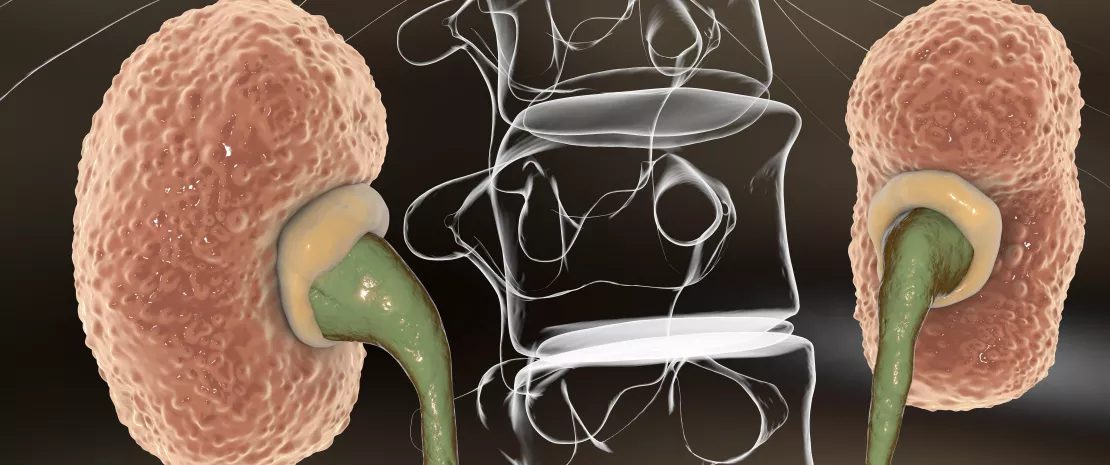Severity-specific signature of gut microbiota in chronic kidney disease
Intestinal bacteria and blood metabolites signal the progression of chronic kidney disease. In addition to the discovery of potential new biomarkers, investigation in this area is also revealing etiological leads.
Lay public section
Find here your dedicated section
Sources
This article is based on scientific information

About this article
Chronic kidney disease (CKD) is associated with specific changes in the gut microbiota and circulating metabolites. However, the functions of the microbiota and its complex relationship with the host’s metabolism during the progression of CKD are still only loosely understood. Hence this study involving 72 patients with CKD at different severity stages (26 mild, 26 moderate and 20 advanced cases) and 20 control subjects with normal renal function. Fecal samples were subjected to (sidenote: Shotgun sequencing method is more accurate than 16S rARN. ) , while blood metabolite profiling was performed, targeting bile acids (BA), short- and medium-chain fatty acids and uremic toxins.
A bacterial and metabolic signature
13 bacterial species and 6 circulating metabolites experienced significant changes (increases or decreases) from early to advanced stages of CKD, or at a specific stage or stages only. For example, Bacteroides eggerthii distinguished control subjects from patients in the early stages of CKD, while Prevotella sp. 885 correlated with urea excretion and reflected progression of the disease. Some gut bacteria can therefore act as useful biomarkers for the early diagnosis and monitoring of CKD. As regards metabolites, propionic acid decreased significantly in late stages of CKD, with its absence strongly signaling advanced patients.
Etiological leads
Bacterial genes associated with the biosynthesis of secondary BA were found to be more prevalent in the early stage of CKD, indicating that the conversion of primary BA into secondary BA by intestinal bacteria occurs at the onset of kidney function decline. The advanced stages of the disease were correlated with enrichment of pathways linked:
– on the one hand, to the metabolism of (sidenote: Steroids, ether lipids, polyunsaturated fatty acids ) (probably involved in metabolic syndrome, which is often associated with dyslipidemia, known to be an etiological factor in CKD)
– and, on the other hand, to the biosynthesis of lipopolysaccharides (LPS, inflammatory endotoxins) Therefore, changes in the metabolism of the microbiota and inflammation in the host are thought to influence renal health.
Bacteria-metabolite links
The team identified gut bacteria linked to changes in circulating metabolites, suggesting the potential involvement of the intestinal microbiota in the development of CKD. For example, the notable decrease in B. eggerthii in CKD patients was correlated with the synthesis of secondary BA at an early stage of the disease. Similarly, the increased synthesis of LPS in late stages was partly attributed to an increase in Escherichia coli and other Enterobacteriaceae. These bacteria-metabolite links may indicate either that the bacterial species produces this metabolite or that the metabolite enhances/inhibits the growth of the bacterial species. In sum, this clearer understanding of the relationship between intestinal bacteria species and host metabolism at different stages of CKD provides potential etiological and diagnostic leads for the disease.
1 A high throughput DNA sequencing technique, known as “random sequencing”, which allows large quantities of DNA to be sequenced in very short periods. This method can be used to sequence entire genomes, for example.






